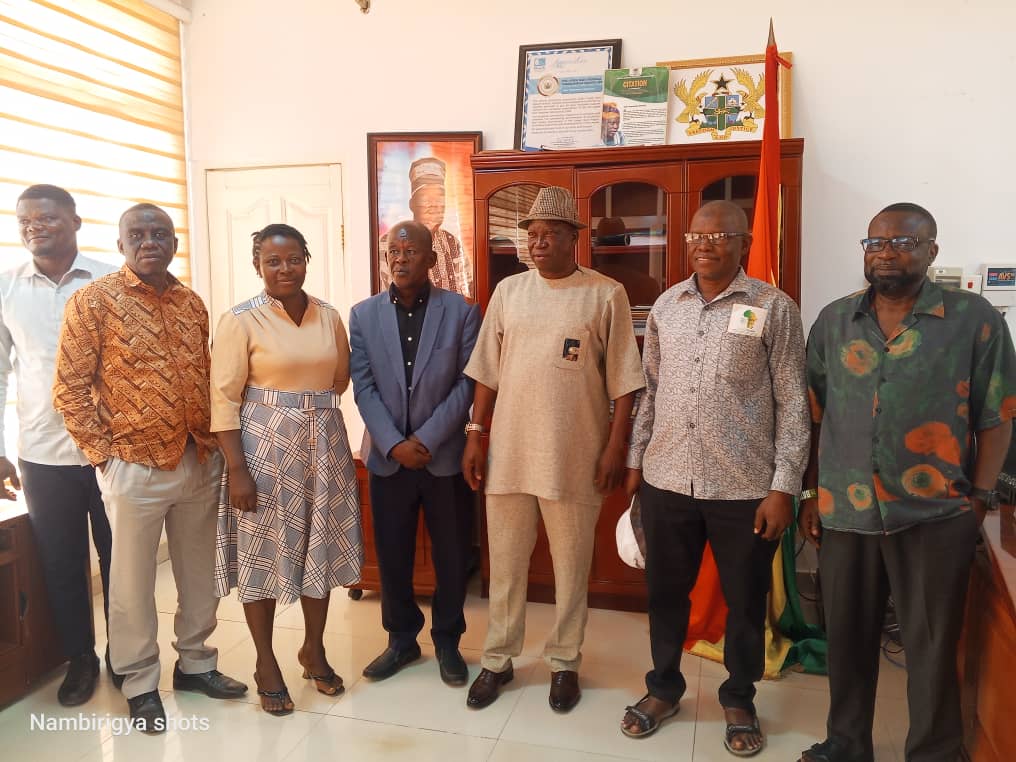The Upper East Regional Minister has proposed large-scale commercial donkey farming as a solution to the region’s donkey extinction crisis, arguing that the animals’ economic value should drive investment rather than outright slaughter bans.
Minister Donatus Akamguri Atanga suggested that Ghana capitalise on the international donkey hide market by establishing commercial donkey breeding operations.
Speaking to advocates from the Fight Against Donkey Extinction on Wednesday, 19 November 2025, Atanga noted that such ventures could generate revenue for infrastructure development while simultaneously safeguarding the species from extinction.
“If the donkey skin alone can fetch that much, why don’t we invest in rearing donkeys?” Atanga stated, explaining a situation where the sale of donkeys on a commercial scale could fund the construction of schools and hospitals.
The minister’s comments followed a presentation by Professor Roger Kanton, highlighting a drastic decline in Ghana’s donkey population from 14,500 to under 5,000 due to mass slaughter driven by demand for Ejiao, a traditional Chinese medicine.
Proposed breeding operations aim to leverage economic opportunities from the donkey hide trade while protecting the endangered population.
Kanton noted that a mature donkey can yield products worth up to $500,000, making them targets for thieves who have been stealing donkeys from vulnerable women and farmers in northern Ghana. Women have had donkeys rustled from their homes,” Kanton said.
“From my home, women have been rustled out. Go to Bolgatanga and ask. They will tell you”.
The Minister, Mr. Atanga, challenged the advocacy group’s emphasis on preventing donkey slaughter, insisting that economic incentives must be tied to conservation efforts for effective outcomes.
He emphasised the importance of aligning individual interests with donkey breeding, cautioning that without economic motivation, farmers would be disinclined to rear donkeys, leading to potential extinction.
“They must know what they are gaining from it, so that if we don’t take it from that angle, our activity will meet a lot of resistance.” Atanga likened the situation to Ghana’s investments in profitable sectors like gold mining and agriculture, highlighting that any economically viable entity requires cultivation and investment.
The minister’s position reflects a practical dilemma facing northern Ghana: balancing immediate economic opportunities against long-term sustainability and the welfare of rural communities that depend on donkeys for agricultural work and transportation.
Professor Kanton highlighted the biological challenges hindering commercial donkey breeding, despite China’s superior scientific capabilities. He noted donkeys have a long gestation of 11 to 14 months and a low fertility rate of 30%, meaning breeding is hard to achieve.
Kanton emphasised his organisation’s support for legitimate breeding operations but condemned the rustling of donkeys, which is currently occurring. He described toxic conditions at Chinese processing facilities in Bolgatanga, where donkey hides are exported. China’s decreasing donkey population—from 30 million in 2017 to 1 million by 2019—led to a ban on domestic slaughter and increased demand for donkey products from Africa, where companies now process up to 250 donkeys daily.
The crisis has prompted local governments like the Walewale and West Mamprusi Municipal Assemblies to enact bylaws prohibiting donkey slaughter for hides. In May 2022, Professor Kanton and the Walewale paramount chief shut down the Blue Coast Ghana Limited facility, only for operations to shift to Bolgatanga and later to Zwarungu, highlighting the challenges of enforcement without regional coordination.
Atanga acknowledged the necessity of action to protect donkeys from extinction but stressed that economic factors must guide any solutions. He asserted that the debate should not center on whether to kill donkeys but rather on how to cultivate and invest in resources that could generate wealth. The minister advocates for a replenishment strategy as a central component of conservation efforts.
He suggests that, in order to protect donkey welfare and prevent their extinction, a plan must be developed to support donkey rearing. Atanga believes that commercial-scale breeding can serve both conservation and economic development objectives, allowing for the dual benefits of preventing extinction and achieving economic advantages. “In that case, we can prevent them from being extinct, then we can also benefit from it economically,” Atanga said.
The Fight Against Donkey Extinction, in collaboration with Brooke West Africa and Brooke UK, has developed support networks across five districts in Ghana: Walewale Municipal, West Mamprusi Municipal, East Mamprusi Municipal, Bolgatanga Municipal, Kassena Nankana West District, and Bongo District.
The initiative recognises outstanding farmers, particularly vulnerable women who have suffered losses from theft, by awarding them two donkeys annually. Prof. Kanton, a seasoned crop scientist with three decades of experience at Ghana’s Council for Scientific and Industrial Research, emphasised the ongoing advocacy and the importance of gathering intelligence on illegal activities related to donkey exports. \
“When we get you, we will announce, we will mention your name,” he said, promising to shame offenders
noting that the export of donkey skins is prohibited under Ghanaian law.
Source: Asaase News


